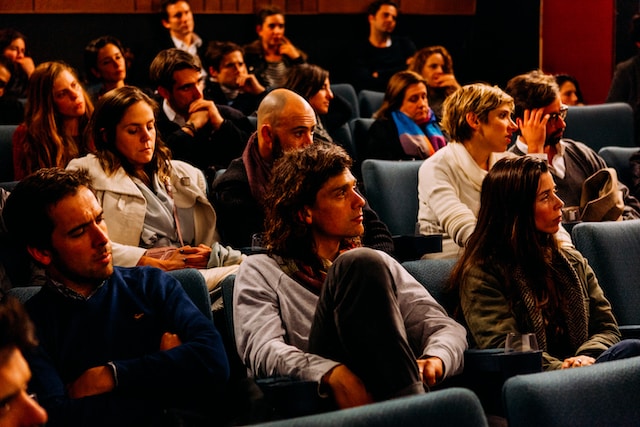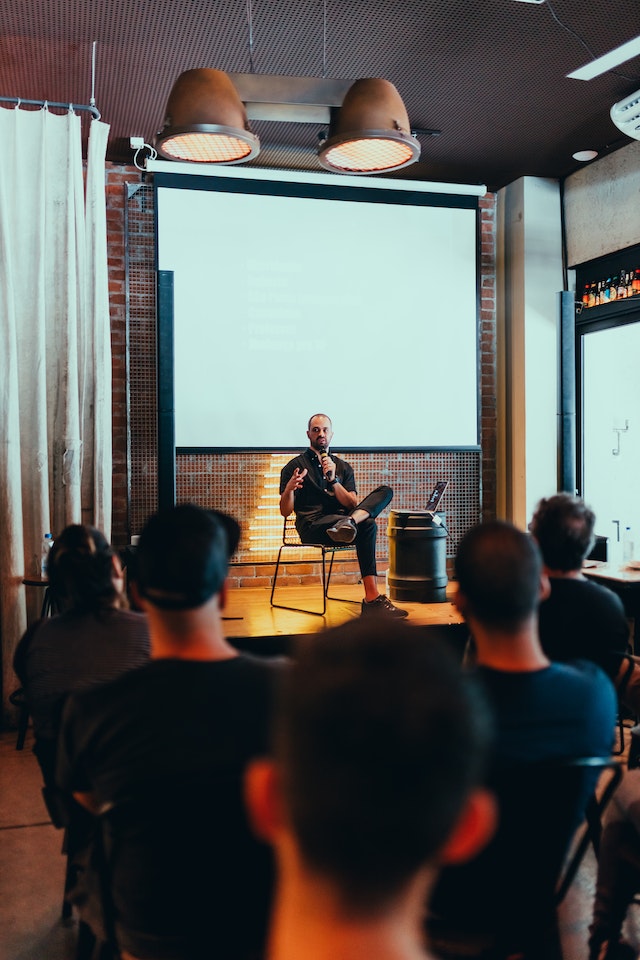
Aspiring and established writers often find themselves in a solitary pursuit, locked away in their writing dens for hours on end. However, to succeed as a writer, it is crucial to connect with others in the industry, learn new skills, and gain inspiration from those who have come before. That’s where writing conferences come in.
A writer conference is a gathering of writers, editors, literary agents, publishers, and other industry professionals who come together to share knowledge, improve their craft, and network. These conferences can range from small local events to massive international gatherings and can cover any genre, topic, or aspect of the writing industry.
Writing conferences are like literary gatherings where people from different corners of the world come together to celebrate writing, reading, and storytelling. They are moments of joy for writers and readers, a time when they can exchange ideas, network, and learn about the latest trends and techniques in the world of literature.
A game-changer for writers
Attending a writing conference can be a game-changer for writers of all levels. Not only do you get the chance to learn from experts in your field, but you can also connect with like-minded individuals, gain valuable feedback on your work, and even pitch your writing to agents and publishers.
For aspiring writers, writing conferences are a rich resource for learning how to improve their craft. Panels and workshops often cover topics such as world-building, character development, plot structure, dialogue, and more. Writers can also learn about the publishing industry, traditional and self-publishing, and marketing their work.
At a writing conference, writers have the opportunity to get feedback on their work from experts in the publishing world. Whether it’s a pitch session with a literary agent or an editor, a one-on-one critique session, or a workshop with their peers, writers can get valuable feedback that can help them take their writing to the next level.

In addition to learning and networking opportunities, writing conferences also offer writers a chance to mingle with like-minded individuals. Attendees can form new friendships, creative partnerships, and even gain new writing buddies.
Types of Writer Conferences
Genre-specific conferences:
Genre-specific conferences are events that are designed to cater to writers of specific genres. They focus on specific genres such as mystery, romance, science fiction, and fantasy. These conferences can be immensely beneficial for writers because they offer a unique opportunity to connect with other writers who share their interests and passions. Here are some examples of genre-specific conferences:
1. ThrillerFest
ThrillerFest is an annual conference held in New York City that celebrates the thriller genre. The conference attracts some of the biggest names in the industry, including award-winning authors, literary agents, and publishers. Attendees can attend panels, workshops, and one-on-one critique sessions. They can also participate in writing competitions and networking events.
2. Romance Writers of America Conference (RWA)
The RWA conference is the premier event for romance writers. The conference is designed to help writers improve their craft and connect with other romance writers, editors, and literary agents. Attendees can learn from workshops, attend panels and Q&A sessions, and participate in critique groups.
Benefits of attending genre-specific conferences
- Learn genre-specific writing techniques, trends, and industry news.
- Connect with other writers, editors, and agents who share your passions.
- Get one-on-one feedback on your work from experts in your genre.
- Attend workshops and panels that cater specifically to your genre and interests.

General writer conferences
General writer conferences are events that welcome writers from all genres and backgrounds. These conferences have a more diverse lineup of speakers, topics, and workshops. Attending a general writer conference can be an excellent way to learn about various aspects of the publishing industry and meet other writers. Here are some examples of general writer conferences:
1. The Writer’s Digest Annual Conference
The Writer’s Digest Annual Conference is a three-day event that brings together writers of all levels to network and learn from industry experts. The conference covers all aspects of the writing and publishing process, from craft to marketing. Attendees can participate in workshops, attend keynote speeches, and pitch their work to literary agents and publishers.
2. The Association of Writers & Writing Programs (AWP) Conference
The AWP Conference is the largest writers’ conference in North America. The conference brings together writers, editors, and publishers from all over the world. Attendees can participate in panels, discussions, and readings. They can also network with fellow writers and attend book signings.
Benefits of attending general writer conferences

- Learn about different aspects of writing, publishing, and marketing from industry experts.
- Connect with writers of all levels and genres.
- Attend workshops that cater to your specific interests.
- Get feedback on your work from agents, editors, and other professionals in the industry.
Online conferences
Online conferences are becoming increasingly popular, especially with the current global pandemic. These conferences provide a unique opportunity for writers to attend events from the comfort of their own homes. Online conferences are also more affordable than in-person conferences and can be attended from anywhere in the world. Here are some examples of online conferences:
1. The Self-Publishing School Summit
The Self-Publishing School Summit is an online event that offers writers a chance to learn about self-publishing their work. The conference offers a variety of workshops and masterclasses taught by bestselling authors and publishing experts.
2. The Non-Fiction Writers Conference
The Non-Fiction Writer’s Conference is an online event that is designed for non-fiction writers. The conference offers workshops, interviews, and panels led by experts in the field of non-fiction writing.
Benefits of attending online conferences

- Attend conferences from the comfort of your own home.
- Save money on travel and lodging expenses.
- Connect with writers from all over the world
- Attend workshops and classes at your own pace.
What to expect at a writing conference
Attending a writing conference can be a life-changing experience for writers of all levels. Not only do conferences provide a chance to learn from industry experts, but they also offer a unique opportunity to connect with other writers and gain valuable feedback on your work. If you’re planning to attend a writer conference, here’s what you can expect:
Keynote speakers
One of the highlights of any writing conference is the keynote speakers. These are usually celebrated authors, editors, or agents who have made a significant impact in the publishing world. They are invited to give inspiring talks about their writing journey, share insights into the industry, and provide advice on writing and publishing. Hearing from these experts can be a powerful motivator for aspiring writers and a source of inspiration for established authors.
Workshops and panels
Writing conferences typically offer a wide range of workshops and panels. These sessions cover various aspects of the writing process, from crafting compelling characters to building a social media platform. Attendees can choose from a diverse range of topics, picking and choosing which sessions to attend based on their interests and needs. Some conferences also offer hands-on workshops where writers can practice their craft in real-time and receive feedback from their peers.
Networking opportunities

Conferences are excellent opportunities to network with other writers, editors, agents, and publishers. Attendees can make new connections, collaborate on projects, and learn about new opportunities in the industry. Conferences often provide social events, such as cocktail parties or dinners, where attendees can mingle and form new friendships. Networking is a significant benefit of attending a writing conference and can lead to many exciting opportunities in the future.
Book signings
Conferences often feature book signings, where authors can sell and sign copies of their books. This is a chance for readers and writers to meet their favorite authors and have their books personalized. Book signings are also an excellent opportunity to network and learn more about the publishing process from published authors.
Pitch sessions
Pitch sessions are where writers can pitch their work directly to literary agents and publishers. These sessions are often competitive and require writers to prepare a concise and compelling pitch for their book. Pitch sessions can be nerve-wracking but are an excellent opportunity for writers to get their foot in the door of the publishing industry.
Making the most of your writing conference experience
Attending a writer’s conference can be a valuable investment in your writing career. But with so many workshops, panels, and events to choose from, how can you make the most of your experience? Here are some tips on how to maximize your time at a writer’s conference.
Setting goals
Before attending a writing conference, set specific goals that you want to achieve. Do you want to learn about the craft of writing? Network with other writers? Get feedback on your work from industry professionals? Knowing what you want to achieve will help you make the most of your time at the conference.
Attending workshops and panels
Writer conferences offer a wide range of workshops and panels covering various aspects of the writing process. Attend as many as you can that align with your goals. Make sure to take notes and ask questions during these sessions. You can also interact with the panelists during Q&A sessions or ask them for more advice after the session.
Networking effectively
During breaks, at meals and cocktail parties, take the time to meet and talk to other writers, industry professionals, and published authors. Exchange contact information and follow up with them later. You can also attend networking events, book signings, and other social events to make new friends and connections.

Participating in pitch sessions
Pitch sessions offer writers the opportunity to pitch their work directly to agents and publishers. Make sure to research the agents and publishers ahead of time and prepare a concise and compelling pitch. Keep in mind that not all pitch sessions are successful, but it’s a great way to get your work in front of industry professionals and get feedback.
Taking notes and following up
During the conference, take detailed notes on the workshops, panels, and pitch sessions that you attend. Review your notes and make a list of action items – things you learned, contacts you made, or opportunities to follow up on. After the conference, follow up with new contacts, send thank-you notes, and continue the conversations you started.
A tip for organizers: If you’re organizing writing conferences, a service like Tixily might be a great choice to help with your event.
A must-not-miss opportunity
If you’re a writer, don’t miss out on the chance to attend a writing conference. They offer a wealth of opportunities to improve your craft, enhance your network and make lifelong friendships. So, pack your bags, grab a notebook or laptop, and join the millions of writers who have found success at writing conferences.